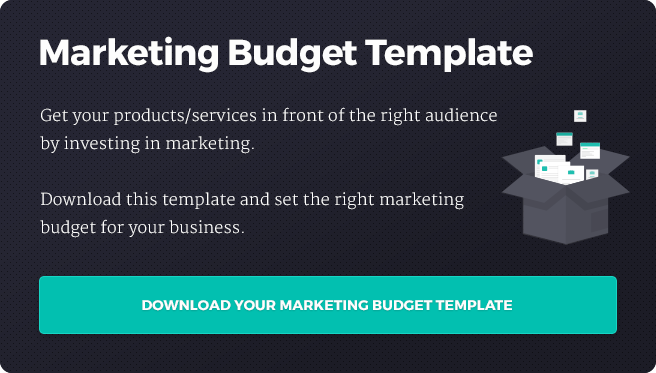Whether you have a marketing plan or not, you must make some effort to market your company. It could be a few random Instagram posts or a planned outbound marketing strategy, but you should always review your efforts, then update, plan and implement your changes.
How do you know your marketing plan is suitable for your business? The truth is; you don’t unless you've tested it. A test and adjust approach is vital.
When you’re given this task, you need to know you've done it well. Having confidence that your plan will hit the mark is crucial to move in the right direction and achieve all of the goals you've set.
Here are 8 questions you need to ask when conducting your marketing review.
1. Do You Know Where You Stand?
How do we know where we’re going if we don’t know where we are? Understanding where the business stands is fundamental, it's the primary consideration when conducting a marketing review.
Have you completed a marketing SWOT analysis? Do you know how, where and why you need to improve? Do you understand what your competitors and associates are doing? What's your audience reading? Where are they reading it? And who’s reading what you’re creating?
Painting a picture of your content landscape reveals opportunities and whether they're threatened. Your SWOT analysis must inform your marketing strategy development.
Armed with this information, you’re able to focus on the tactics that offer the best chance of success, while convincing internal stakeholders of the strategy by backing it up with research and evidence.
Checklist:
✔ SWOT analysis has been conducted
✔ Competitors and associates have been profiled
✔ The content landscape has been understood
✔ Opportunities and challenges have been clearly articulated

2. Do You Have the Right Goals & Objectives?
You can’t start developing marketing plans without this information. The board won’t back you if you aren't working towards company growth.
Your objectives should synergise with your business growth plans and your sales team’s targets. It's pointless setting ambitious targets for your sales team if your marketing team aren't generating enough leads.
Metrics like your leads generated, the quality of those leads and how many progress to sales qualified leads is significant and will shape the targets of your new marketing plan.
key point
You’ll know you’ve defined the right goals if you can measure them, and the best way to ensure that is to create SMART goals.
These goals must be specific, measurable, attainable, relevant and timely. For example, If you’re planning to grow a 2000-strong subscriber list in two months when you’re starting at zero, you're probably going to be disappointed.
You also need to be crystal clear about why each goal is crucial. Success is driven by motivation which is spurred on by the clarity and intent. If you understand the importance of each goal, so will your team. Inspire them, give them purpose, and they’ll be right by your side.
Checklist:
✔ Business objectives have been understood
✔ Sales targets have been considered/agreed upon
✔ SMART objectives have been built
✔ Goals are clearly communicated to the team
3. Have You Profiled Your Audience?
And I mean, properly. Have you drafted out each persona and understood which are most relevant to your business; have you observed, listened and spoken to a group of people in each area?
Intuition, guesswork and existing knowledge are starting points for audience profiling. But confirmation bias pulls us in all sorts of directions, meaning our intel is never objective. We have a responsibility to build our personas based on both intuition and evidence, which includes peoples' experiences.
Have you done enough to discover the facts about your audience? Stakeholder interviews and industry research are sources of this kind of information. Combine them with your intuition and that of your team to build multi-dimensional portraits of your ideal customers.
Checklist:
✔ Audience personas have been built with both intuition and evidence
✔ Stakeholder interviews were conducted
✔ Industry evidence has been utilised
✔ Your team have contributed to the profiling process

4. Do You Know What Keywords To Rank For?
If SEO is an objective, and it should be, you need to think about what you want to rank for in a search engine. A core part of a digital marketing plan is to understand not only what the marketplace looks like, but also what people are searching for. Do you understand this? And have you analysed the efforts needed for your business to make improvements in search rankings? Tools like SEMrush and Ahrefs can help you do this.
Checklist:
✔ Conducted in-depth keyword research and have a list of keywords you want to rank for
5. Have You Brainstormed Content Ideas?
After conducting your research, knowing your audience pains and promising keywords, generating content ideas should come easily to you and your team. The crucial component here is to map content using the buyer's journey. You’ll need content that connects with readers at awareness, consideration, and decision level stages. A variety of visual, audio and written content should also be included.
When generating ideas, go beyond the subject area. Create a draft title while you’re ideating; one that incorporates keywords, tackles audience pain and promises a benefit.
Checklist:
✔ Generated a host of relevant content ideas and titles
✔ Mapped a balanced variety of content across the buyer's journey
6. Have You Created A Timeline For Your Content Plans?
Almost a third of marketing teams underestimate how long something is going to take. Mapping out your content plans ensures you have a firm grasp on the project at hand and what’s involved in making it a success.
Your plan should include:
- When you create your content
- Who will produce it
- What resources are needed
- What visuals are required
- Where the content will appear
- When it will go live and how it will be distributed.
Detail keywords, persona and premium content for a comprehensive plan.
Make sure you sense-check your timeline with other team members. Look for all the things that might go wrong. It sounds depressing, I know, but mitigating risks before you begin helps you plan for the worst-case scenario. You might find you need extra time or resource to make the plan a success – it’s best to know that in advance.
Checklist:
✔ Built comprehensive editorial calendar
✔ Shared it with the team and management
✔ Planned for things that might go wrong

7. Have You Got Tracking Systems To Monitor Performance?
The result of all this research and preparation is a flexible plan you’re ready to put into action. But before you hit ‘go’, be sure you have the right systems in place to track and monitor your success.
Software plays a vital role in your marketing review/plan, as it enables you to test and adjust your plan quickly and efficiently, whilst providing you with essential marketing intelligence to take to the decision makers.
You might prefer a selective approach, using a combination of tracking software such as Google Analytics and social monitoring software. Or you might consider a full-service solution that connects all your inbound marketing dots, from content to site visits, CTA effectiveness, to leads.
Checklist:
✔ Understood what needs to be measured and how
✔ Implemented an effective tracking and/or monitoring system
8. Is Your Website Performing?
Many website functions and aesthetics that contribute to how well your marketing plan is executed.
The first thing people see when they arrive on your website? Your website design! So make sure it blows them away. A boring website isn't going to keep visitors on the page; then again, neither is an overcomplicated or loud website. You need to strike a balance. Think about what your brand stands for and how that comes across in your design.
It isn't all about what you see on the surface; your website needs to have a journey. When someone lands on your homepage, where are they going next? What's the journey you want them to take? Is there a resource you want them to download? A number you want them to ring? A person you want them to see?
The area of your business you want to market the most should spearhead your website marketing strategy.
Also, think about how you'll use digital marketing tactics to ensure your website gets recognised. Have you considered keyword research when writing the content? Do you have any professional videos to host on it? Do you have a blog to generate more traffic? Consider which tactics will help the most and add them to your marketing plan.
Checklist:
✔ Web design ties in with all marketing goal and objectives
✔ The website has a clear user journey
✔ Various types of digital marketing have been considered to promote the website
So, how did your marketing review go? Did you have the answers to all the questions? Is your list ticked off?
Need a nudge in the right direction? This content strategy template will help you build, test, action and measure your marketing plan.
Editor's note: This post has been revamped and updated for 2018. At Red-Fern, we love keeping our content fresh; it ensures our articles are up-to-date, relevant and accurate!




